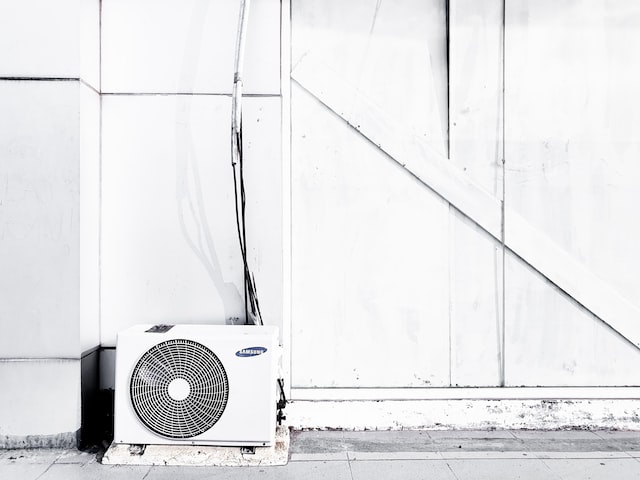Air conditioning is an integral component of any Glasgow building. Not only does air conditioning in Glasgow keep occupants comfortable and productive, but the temperature control it provides also contributes to overall productivity increases.
HVAC systems consist of various components, such as air handlers, evaporator coils and thermostats. Each must be carefully chosen and installed to meet the demands of your building’s climate control requirements.

Comfort
Heating, ventilation and air conditioning (HVAC) systems offer people working or living within buildings ‘conditioned air’ for a comfortable and secure atmosphere.
Thermal comfort is a state of mind that expresses satisfaction with the thermal environment and it’s assessed through subjective evaluation (ANSI/ASHRAE Standard 55). According to these standards set by ASHRAE, indoor comfort conditions must meet 80% or more of occupants in order to be classified as within the ‘comfort zone’.
A measurement campaign was conducted to record HVAC electrical consumption, indoor temperature, carbon dioxide concentration, relative humidity and global horizontal irradiance. With these experimental data thermal comfort was calculated analytically using two thermal comfort methods: Fanger’s method and the Adaptive Comfort Method.
Health
Modern Scottish air conditioning systems are critical in any building, not only to provide needed comfort in the environment but also for certain health advantages. Filtered air can filter pollutants and mould that cause asthma, allergies, rashes, and other respiratory conditions; air conditioning in Glasgow helps eliminate them all!
Additionally, air purifiers help manage ozone and particulates that can trigger allergic reactions like pollen or dust mites. Indoor pets also benefit from having fresh air to avoid overheating or developing infections from other indoor animals.
Air conditioning in Glasgow is a required component of all hospitals to keep patients and staff comfortable, enabling them to focus on healing. It helps reduce the risk of illnesses like heart disease, chronic lung disorders, diabetes, and obesity – all of which can be made worse by overheating.
Recent studies have repeatedly confirmed the critical role air conditioning plays in hospitals. A well-maintained air conditioning system can prevent microbial contamination of hospital rooms and reduce transmission of microorganisms such as coronavirus (COVID-19), SARS, and other communicable diseases that require isolation.

Safety
Air conditioning systems are an integral part of building preservation, code compliance and workplace health and safety (WH&S). Without adequate humidity control in buildings, moisture content can lead to damp, mould, mildew and dust mite growth – damaging wooden and metal components. Furthermore, high levels of moisture introduce allergens and other microorganisms which may lead to respiratory infections or other health problems.
A properly designed and installed air conditioning system makes it simple to access all its components – such as AHUs, controls and exhaust fans – for routine maintenance and to guarantee the system functions effectively and efficiently. Furthermore, clean air filters remove bacteria, germs and other hazardous particles from the air which helps protect staff health while improving productivity. With all these advantages, many business owners recognize the value in having an air conditioning system installed at their premises.
Productivity
One of the greatest advantages to having a well-maintained air conditioning system is its capacity to boost productivity in various ways. Workers will experience improved concentration levels and more energy to work with, leading to contented employees who are far more likely to take initiative and do their jobs well.
Although the air conditioning industry has been around for some time, we’re only recently beginning to appreciate how integral AC is to how we live and work. Modern HVAC systems that we rely on in homes and businesses help meet energy efficiency regulations while keeping us safe from extreme heat or humidity and can even preserve buildings by controlling pests like mould, mildew or dust mites. Today’s air conditioning industry continues to innovate in terms of design, function and technology – creating an exciting hub of activity!

A freelance science writer specialising in emerging technologies, collaborative research projects, and making complex scientific concepts accessible to a wider audience.


